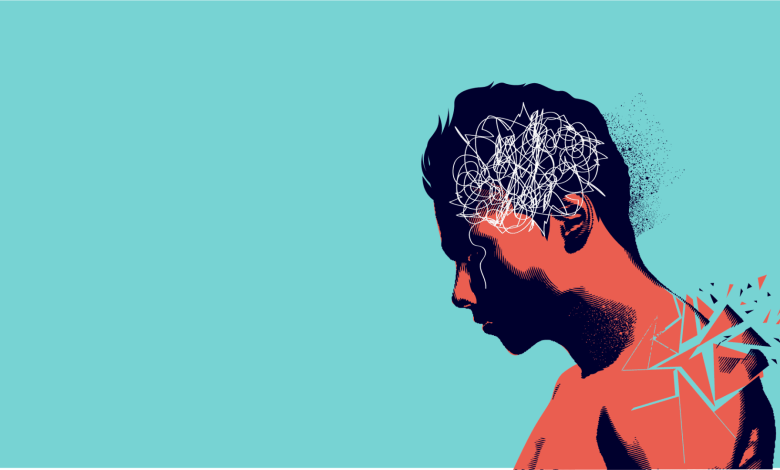Understanding Mental Health Challenges Faced by People with Anxiety

Anxiety is a common yet often misunderstood mental health condition that affects millions of people worldwide. It manifests in various forms, from generalized anxiety disorder (GAD) to specific phobias, social anxiety disorder, and panic disorder. The impact of anxiety can be profound, affecting daily functioning, relationships, and overall quality of life. In this blog, we’ll explore the challenges faced by individuals with anxiety and how counselling and working with a psychologist can effectively help manage it.
The Nature of Anxiety
Anxiety is characterized by persistent and excessive worry or fear about everyday situations. It can manifest physically through symptoms such as rapid heartbeat, sweating, trembling, and difficulty breathing. Emotionally, anxiety may lead to feelings of apprehension, restlessness, and a sense of impending danger or doom.
Challenges Faced by Individuals with Anxiety
- Daily Functioning: Anxiety can impair one’s ability to concentrate, make decisions, and perform tasks effectively. This can impact academic or professional performance, leading to absenteeism, decreased productivity, and missed opportunities for personal growth.
- Social Relationships: Individuals with anxiety may struggle with social interactions, fearing judgment or embarrassment. This can result in isolation, loneliness, and difficulty forming or maintaining friendships and romantic relationships.
- Physical Health: Chronic anxiety can take a toll on physical health, contributing to conditions such as high blood pressure, digestive issues, and weakened immune function. The constant activation of the body’s stress response can lead to long-term health consequences if left untreated.
- Emotional Well-being: Anxiety often coexists with other mental health conditions such as depression. The constant worry and fear can lead to feelings of hopelessness, low self-esteem, and a diminished sense of joy or pleasure in life.
How Counseling Can Help Manage Anxiety
Counseling, particularly Cognitive Behavioral Therapy (CBT) and other evidence-based approaches, is widely recognized as effective in treating anxiety disorders. Here’s how counseling can help individuals manage their anxiety:
1. Understanding Triggers and Coping Mechanisms
Counseling sessions provide a safe space for individuals to explore their anxiety triggers and identify maladaptive thought patterns or behaviors that contribute to their anxiety. Psychologists use techniques such as cognitive restructuring to challenge and reframe negative thinking, promoting healthier thought patterns and coping strategies.
2. Learning Relaxation Techniques
Psychologists teach relaxation techniques such as deep breathing, progressive muscle relaxation, and mindfulness meditation. These techniques help individuals reduce the physiological symptoms of anxiety and promote a sense of calm and relaxation.
3. Exposure Therapy
For specific phobias or social anxiety, psychologists may utilize exposure therapy. This gradual exposure to feared situations or objects helps individuals confront their fears in a controlled and supportive environment, leading to reduced anxiety over time.
4. Developing Behavioral Strategies
Counseling sessions focus on developing practical strategies to manage anxiety in daily life. This may include setting realistic goals, time management skills, assertiveness training, and improving communication skills—all of which contribute to increased confidence and reduced anxiety levels.
5. Building Resilience and Self-Efficacy
Through counseling, individuals with anxiety learn to build resilience—the ability to bounce back from challenges—and enhance their sense of self-efficacy—the belief in their ability to cope with stressors. This empowerment fosters a positive outlook and strengthens their ability to navigate future anxiety triggers more effectively.
The Role of Psychologists in Anxiety Management
Psychologists play a crucial role in the treatment of anxiety disorders by providing:
- Expert Assessment: Psychologists conduct thorough assessments to diagnose anxiety disorders accurately and develop personalized treatment plans tailored to each individual’s needs.
- Emotional Support: They offer empathetic support and guidance throughout the therapy process, helping individuals explore underlying emotions and develop healthier ways of coping.
- Education and Psychoeducation: Psychologists educate clients about the nature of anxiety, its physiological and psychological effects, and evidence-based treatment approaches. This psychoeducation empowers individuals to actively participate in their treatment and recovery.
- Collaborative Care: Psychologists often collaborate with other healthcare professionals, such as psychiatrists or primary care physicians, to ensure comprehensive and integrated care for individuals with anxiety disorders.
Overcoming Barriers to Counseling
Despite its proven effectiveness, barriers to accessing counseling for anxiety exist, including:
- Stigma: Fear of judgment or misunderstanding about mental health issues may prevent individuals from seeking help.
- Financial Constraints: Counseling services can be costly, and insurance coverage may be limited, making it difficult for some individuals to afford regular therapy sessions.
- Availability of Services: In rural or underserved areas, access to qualified psychologists or mental health professionals may be limited.
Addressing these barriers requires advocacy for mental health awareness, increased funding for mental health services, and initiatives to reduce stigma associated with seeking psychological help.
Conclusion
Anxiety disorders can significantly impact daily life, relationships, and overall well-being. However, with the support of counseling and working closely with a psychologist, individuals can learn effective strategies to manage their anxiety, regain control over their lives, and improve their overall quality of life. By addressing underlying triggers, learning new coping skills, and building resilience, individuals with anxiety can experience lasting relief and achieve their personal and professional goals. Investing in mental health treatment not only benefits individuals but also contributes to a more supportive and inclusive society where everyone has the opportunity to thrive.





